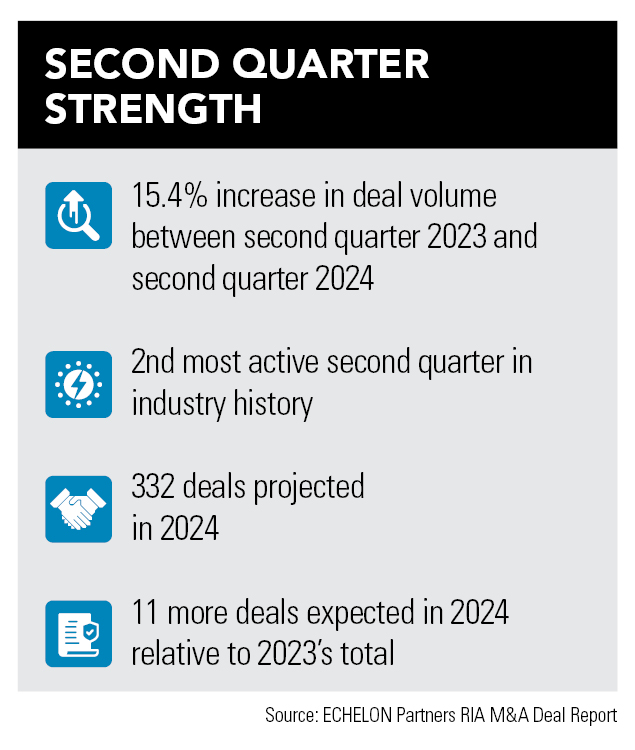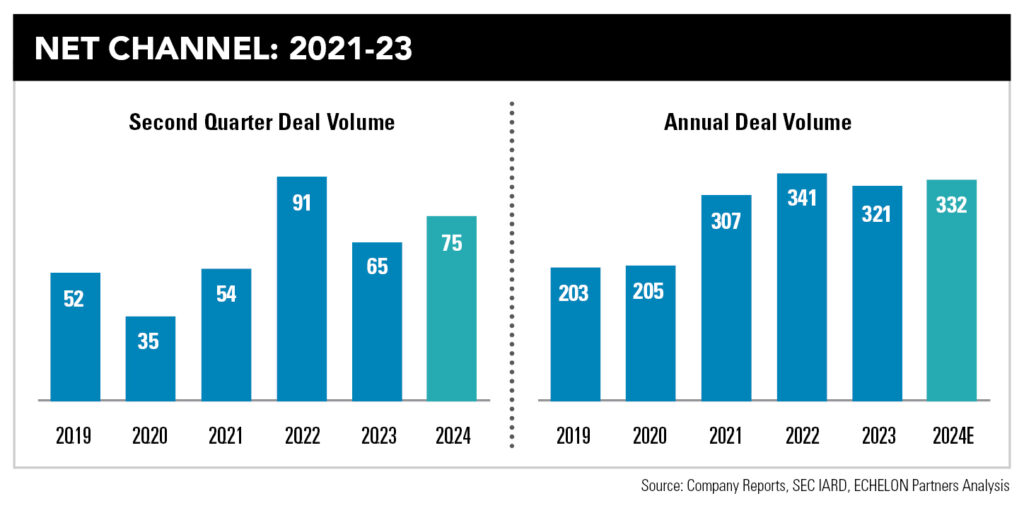

With public markets proving difficult for mega RIAs, a variety of financing and other options continue to be popular for the dominant players in the registered investment advisory marketplace looking for capital to grow or cash out senior partners.
Those include giant firms going private, selling a minority stake to investors – including emerging sovereign wealth funds – merging, or breaking away from broker-dealers under which giant registered investment advisors have been working.
Look no farther than the $275 billion mega RIA Fisher Investments, which stayed away from an IPO and instead said in June it had sold a 23.5 percent stake to Advent International and a subsidiary of the Abu Dhabi Investment Authority. The deal to buy the minority stake in Fisher Investments values the firm at $12.75 billion, according to Fisher.
“As a rule of thumb, there are a limited number of these giant – mega RIA firms that can be sold – and the Fisher deal is kind of an aberration,” said Larry Roth, managing partner at RLR Strategic Partners. “The mega firms are great, but some need to clean up their back offices and consolidate, which they appear to be doing.”
But an RIA does not have to be massive like Fisher Investments to be counted as a mega firm. One industry consultant recently noted that mega-sellers, or RIA firms with more than $5 billion in assets, are poised for a strong year.
“Mega-sellers with more than $5 billion in AUM are surging, potentially driving 2024 to become the first year this cohort reaches or exceeds its 2015 record level of 16 percent of all transactions,” according to a recent report by DeVoe & Co. “Currently at 15 percent of year-to-date transactions, this group of buyers has gained the ground lost by large sellers. With 19 transactions announced in the first half of 2024, mega-sellers are six transactions ahead of the same time period in 2023.”
And there's turnover by investors at large firms, one banker noted.
“Some of the large RIAs are swapping out one large sponsor for another,” said Peter Nesvold, partner at Republic Capital Group. “And some big buyers are walking away from deals that are at the high end of the price range, around 20 times EBITDA. The question for those investors is how they will potentially exit.”
EBITDA is a cash flow metric that stands for earnings before interest, taxes, depreciation and amortization. EBITDA is a common valuation multiple used in RIA transactions. RIA firms have recently routinely been valued at multiples in the neighborhood of eight times EBITDA, but in the recent sellers’ market, higher multiples have been cited, including the astounding 20 times EBITDA.
All sizes of RIAs, which generate cash from fees, are getting pricier. From January 2020 through March 2023, the median EBITDA multiple for firms increased from seven times EBITDA to nine times, with sellers’ expected EBITDA multiples rising from nine times to 11 times EBITDA in the past three years, according to a report from Fidelity.
For decades, the RIA industry has leaned on private capital for growth; initial public offerings, which give mega RIAs access to the public markets, have been a tough road.

Focus Financial Partners Inc. – founded in 2004 by Rudy Adolf, a pioneer among RIA aggregators, and with $360 billion in client assets – last year decided to sell to private investors and become a private company again after five years of trading as a public company.
The IPO plans of the former CI Private Wealth – now Corient, with $167 billion in client assets – appear dead in the water as the aggregator works to combine its various offices. And the share price of AlTi Global Inc., a mega RIA that listed on the Nasdaq at the start of 2023, has taken a beating this year, falling from roughly nine dollars per share at the start of this year to a little less than four dollars per share during trading on August 7.
Regardless, AlTi Global has focused on making acquisitions this year, and in May said it was acquiring Envoi, a Minneapolis-based family office managing approximately $3 billion in assets.
Sovereign wealth funds like the Abu Dhabi Investment Authority could be gaining traction in the RIA and wealth-management market, noted Echelon Partners, an investment bank that focuses on the industry.
“Ken Fisher will maintain roughly 70 percent ownership in the company after the transaction,” according to a recent Echelon report. “Sources indicate that the transaction is the largest investment made in an RIA by a sovereign wealth fund. According to [Fisher Investments,] the transaction was part of the 73-year-old Ken Fisher’s estate-planning strategy.”
Fisher Investments is the Abu Dhabi Investment Authority’s second major investment in a North American wealth management firm, the Echelon report noted.
“The first was their May 2023 investment in CI Financial’s wealth-management business," according to Echelon. “Investments from sovereign funds are a potential alternative to private equity capital, as these investments are viewed by some as a more permanent capital solution relative to [private equity's] often cited three- to seven-year time horizon.”


Relationships are key to our business but advisors are often slow to engage in specific activities designed to foster them.

Whichever path you go down, act now while you're still in control.

Pro-bitcoin professionals, however, say the cryptocurrency has ushered in change.

“LPL has evolved significantly over the last decade and still wants to scale up,” says one industry executive.

Survey findings from the Nationwide Retirement Institute offers pearls of planning wisdom from 60- to 65-year-olds, as well as insights into concerns.
Streamline your outreach with Aidentified's AI-driven solutions
This season’s market volatility: Positioning for rate relief, income growth and the AI rebound
